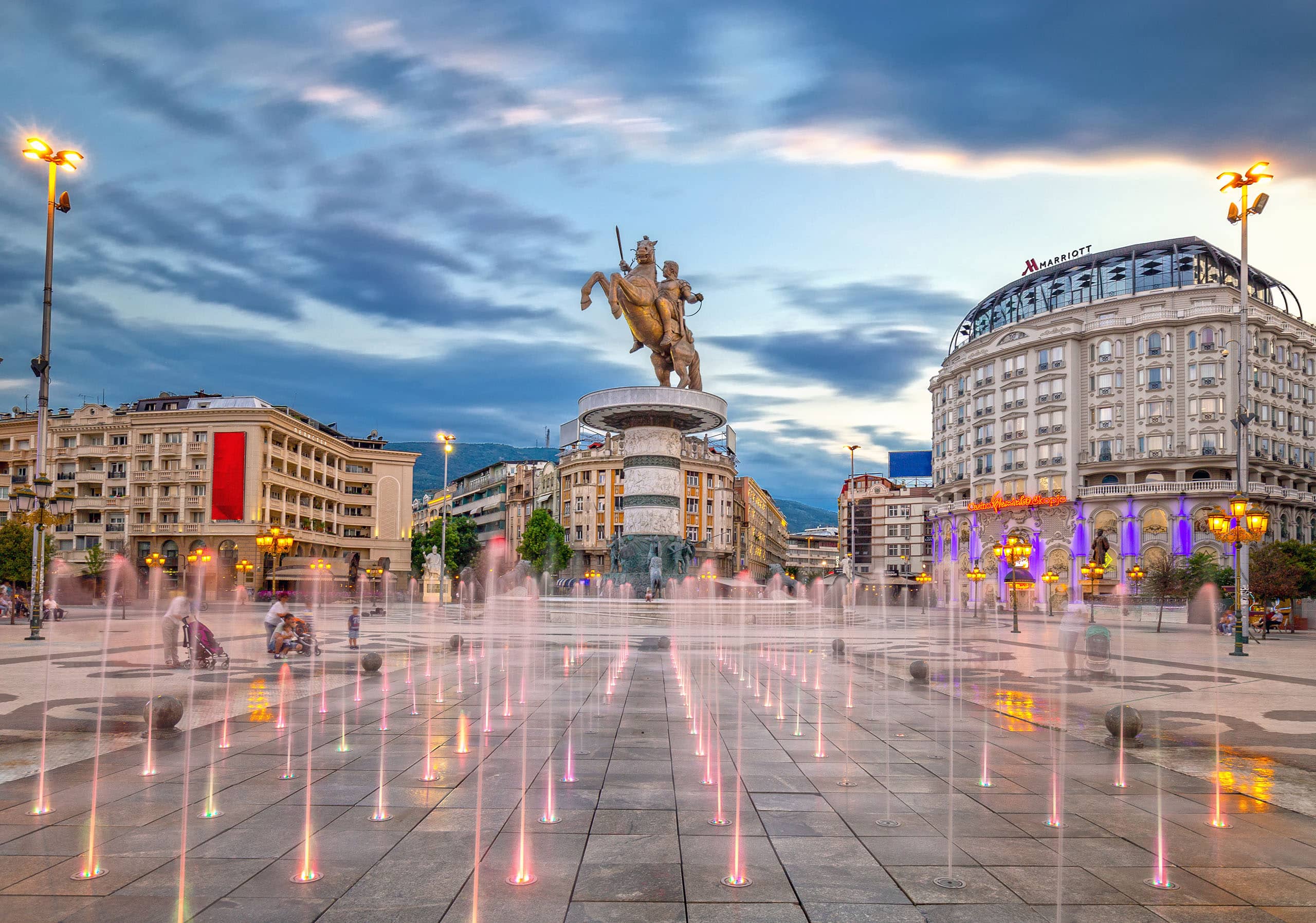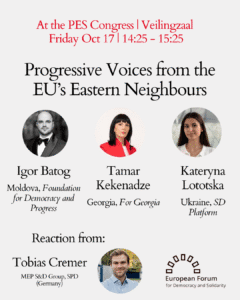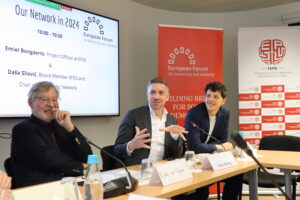Photo: Central square in the Macedonian capital Skopje. Source.
Presidential elections will take place in North-Macedonia on the 24 April . 7 candidates, including incumbent president Stevo Pendarovski, will try to win at least 50% of the vote to declare immediate victory. If no candidate wins 50% of the vote, a re-run will take place on May 8 alongside national parliamentary elections. At least a 40% voter turnout is necessary for the result to be valid.
Which candidates are running?
Incumbent Stevo Pendarovski of the Social Democratic Union of Macedonia (SDSM) is looking to retain his position. He became president in 2019 after emerging victorious against Gordana Siljanovska-Davkova of the self-identified Christian-democratic, but broadly considered nationalistic VMRO-DPMNE. She is once again expected to be Pendarovski’s most prominent challenger. Arben Taravari, who came third after Siljanovska-Davkova and Pendarovski in 2019, represents the Alliance for Albanians.
Important topics
EU integration is a central issue in the elections. Support for EU accession has significantly diminished among the population. Both the name change to North-Macedonia under heavy Greek pressure as well as Bulgarian pressures for constitutional changes to recognise the Bulgarian minority have created a sense of loss of control of the country’s identity. Moreover, while the ruling coalition and the opposition are arguing about the proposed constitutional changes, progress and reform in key areas has stalled.
Pendarovski runs on a broad range of issues, most prominently the protection of civil rights, fighting corruption and advancing EU integration. Siljanovska-Davkova has positioned herself as champion of Macedonian identity using the slogan ‘let’s make Macedonia proud again’. Although a proponent of EU accession, she has pleaded for strengthening ties with neighbouring nations as well as with NATO. She is also a strongly opposed to further amendments of the constitution that Bulgaria has imposed as part of the EU accession.
More broadly, addressing the bad state of the economy, high inflation rates and rampant corruption are important concerns. Economic stagnation and a lack of jobs have led to mass migration in the past years which has seen the population shrink by 10%.
Result forecast
Polls indicate that Pendarovski and Siljanovska-Davkova are almost certain to take first and second place. They will then face off in the re-run on 8 May. Whereas Siljanovska-Davkova lost with a 7% vote difference in 2019, polls indicate she now has a slight lead over Pendarovski.
Voter fatigue with slow EU accession is considered the biggest contributor to her increased popularity. Low levels of political trust throughout Macedonian society are also likely to negatively affect the popularity of incumbent president. In the past, however, Pendarovski has shown the ability to unite a broad coalition of ethnic groups which could prove very useful in garnering support in the second round.



